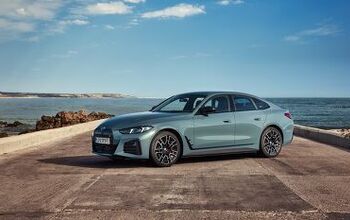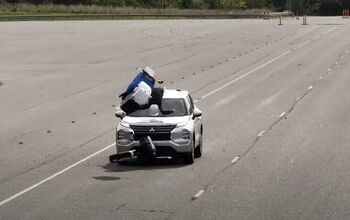Ruff News for Waymo After Test Vehicle Runs Over Dog

A Waymo autonomous test vehicle struck and killed a small dog in San Francisco last month, with news emerging after an incident report filed with the California Department of Motor Vehicles became public. While the accident is nothing in comparison to the fatal crash from 2018, where an Uber AV killed a cyclist, it still spells bad publicity for companies hoping to field self-driving vehicles with the public’s blessing.
Alphabet’s Waymo is calling the accident “unavoidable” and this may be the case. Most of us have been in a situation where an animal darts out into traffic and directly into the vehicle we’re driving. That could be what has taken place here and is supported by the report issued by the California Department of Motor Vehicles. Local outlets, like The San Francisco Standard and KRON4 News, were the first to share the story — noting that documents allege that the dog was off its leash.
The accident took place on May 21st and is part of a sixfold increase in monthly incident reports issued by Waymo’s autonomous test vehicles. General Motors’ Cruise vehicles have also seen a dramatic uptick in negative encounters. Though it’s worth noting that both companies have been ramping up operations in 2023 in preparation for the California Public Utilities Commission allowing autonomous robotaxi to run services 24 hours a day.
From The San Francisco Standard:
The car was in "autonomous mode," but a Waymo test driver was in the driver's seat. The Waymo vehicle sustained minor damage, according to the California DMV report.
A Waymo spokesperson confirmed the incident details and said the company sends sincere condolences to the dog owner.
"The investigation is ongoing, however, the initial review confirmed that the system correctly identified the dog, which ran out from behind a parked vehicle, but was not able to avoid contact," a spokesperson said. "The trust and safety of the communities we are in is the most important thing to us, and we’re continuing to look into this on our end."
Meanwhile, San Francisco officials have been backing annoyed locals who are bemoaning AVs behaving erratically in traffic. Similar to what we’ve seen in Phoenix, Arizona, test vehicles sometimes make sudden stops when uncertain about how to navigate traffic. There have also been allegations made that the vehicles have interfered with public transit and emergency services.
Autonomous vehicles have not developed anywhere near the pace most companies had initially promised and typically require human safety drivers. But companies like Waymo and Cruise have still made headway — offering an impressive experience for riders that are only undermined when the system seems to be at a loss of what to do next.
Hitting a dog is probably not grounds to pull the plug. But it does offer those disinclined to want test-bed AVs operating near their homes more ammunition when criticizing the companies involved. Some believe that self-driving cars have not yet reached a point where they should be allowed to operate on public roads and others believe the entire premise of autonomous vehicles represents an existential threat to humans that drive for a living.
Regardless, it’s assumed that the California Public Utilities Commission will still back companies hoping to expand robotaxi operations in San Francisco, and a formal vote on the matter has been scheduled for June 29th.
[Image: Waymo]
Become a TTAC insider. Get the latest news, features, TTAC takes, and everything else that gets to the truth about cars first by subscribing to our newsletter.

A staunch consumer advocate tracking industry trends and regulation. Before joining TTAC, Matt spent a decade working for marketing and research firms based in NYC. Clients included several of the world’s largest automakers, global tire brands, and aftermarket part suppliers. Dissatisfied with the corporate world and resentful of having to wear suits everyday, he pivoted to writing about cars. Since then, that man has become an ardent supporter of the right-to-repair movement, been interviewed on the auto industry by national radio broadcasts, driven more rental cars than anyone ever should, participated in amateur rallying events, and received the requisite minimum training as sanctioned by the SCCA. Handy with a wrench, Matt grew up surrounded by Detroit auto workers and managed to get a pizza delivery job before he was legally eligible. He later found himself driving box trucks through Manhattan, guaranteeing future sympathy for actual truckers. He continues to conduct research pertaining to the automotive sector as an independent contractor and has since moved back to his native Michigan, closer to where the cars are born. A contrarian, Matt claims to prefer understeer — stating that front and all-wheel drive vehicles cater best to his driving style.
More by Matt Posky
Latest Car Reviews
Read moreLatest Product Reviews
Read moreRecent Comments
- Lou_BC Well, I'd be impressed if this was in a ZR2. LOL
- Lou_BC This is my shocked face 😲 Hope formatting doesn't fook this up LOL
- Lou_BC Junior? Would that be a Beta Romeo?
- Lou_BC Gotta fix that formatting problem. What a pile of bullsh!t. Are longer posts costing TTAC money? FOOK
- Lou_BC 1.Honda: 6,334,825 vehicles potentially affected2.Ford: 6,152,6143.Kia America: 3,110,4474.Chrysler: 2,732,3985.General Motors: 2,021,0336.Nissan North America: 1,804,4437.Mercedes-Benz USA: 478,1738.Volkswagen Group of America: 453,7639.BMW of North America: 340,24910.Daimler Trucks North America: 261,959


































Comments
Join the conversation
" test vehicles sometimes make sudden stops when uncertain about how to navigate traffic."??? Test vehicles are programmed by humans, HUMANS sometimes make sudden stops when uncertain about how to navigate traffic, Duh!!
Self driving cars are going to kill dogs, kill people, crash into things, etc... just like human drivers do all of the time.
The important question is what is the rate that those things occur. According to the NHTSA there are 1.1 traffic fatalities per 100 million miles driven. Are we going to ban self driving cars if the number isn't exactly 0 / 100 million miles driven? I think as long as the number is less than 1, it's an improvement on what we already have (human drivers).